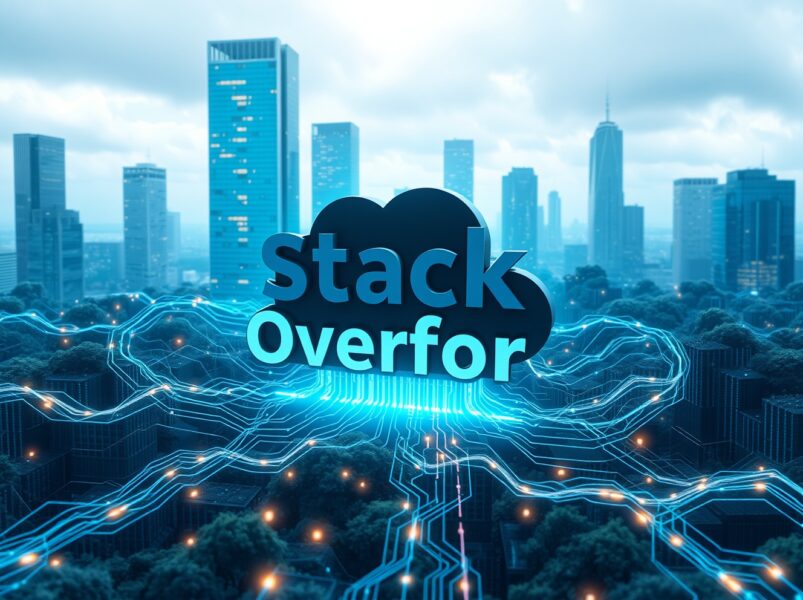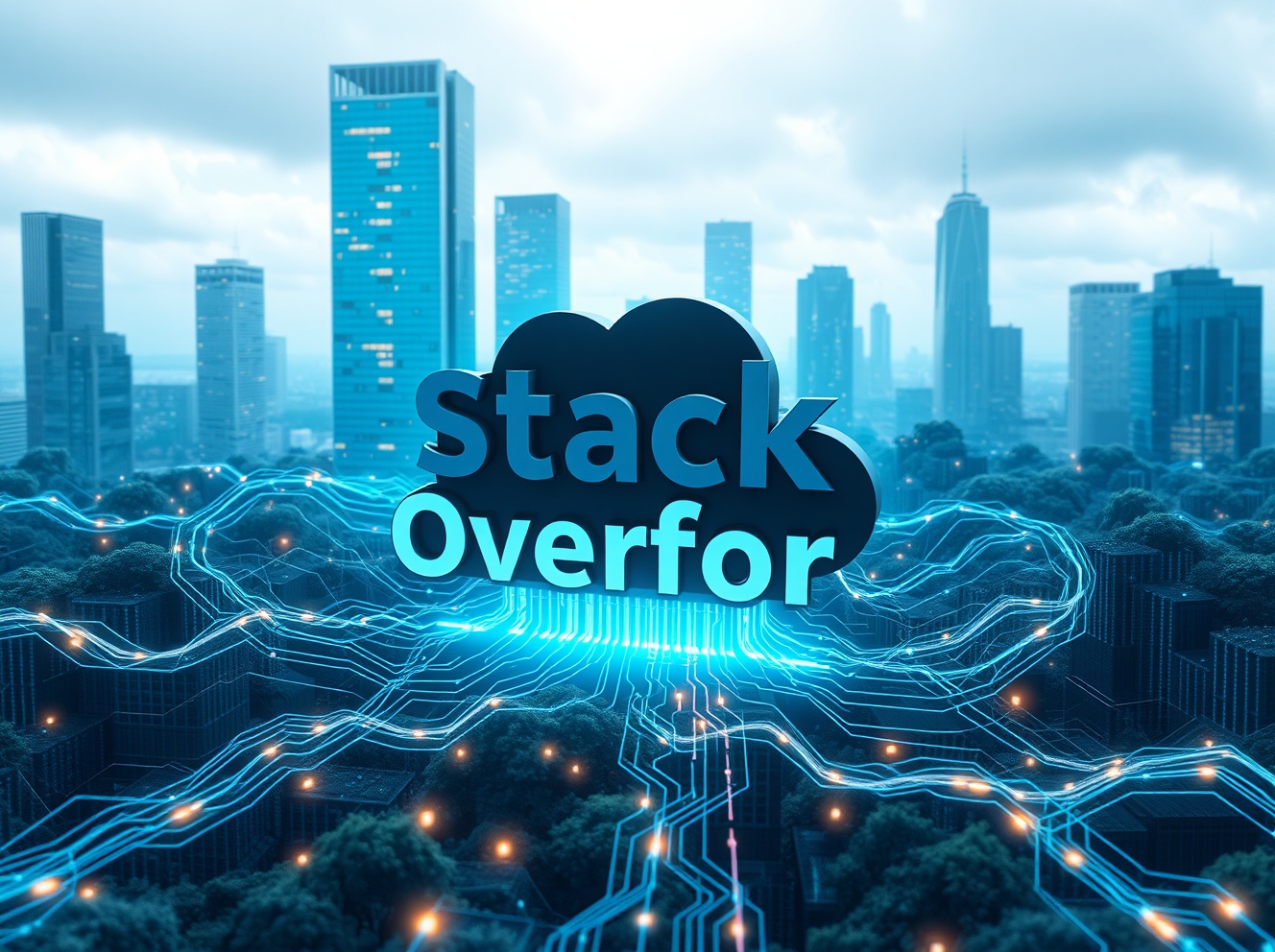Revolutionary: Stack Overflow’s Bold Transformation into Premier AI Training Data Provider

BitcoinWorld
Revolutionary: Stack Overflow’s Bold Transformation into Premier AI Training Data Provider
In a groundbreaking move that could reshape how AI systems learn from human expertise, Stack Overflow is undergoing a dramatic transformation from coding Q&A platform to essential AI training data provider. This strategic pivot positions the company at the heart of the enterprise AI stack, leveraging its vast repository of programming knowledge to fuel the next generation of artificial intelligence.
Stack Overflow AI Enterprise Evolution
During Microsoft’s Ignite conference, Stack Overflow unveiled a suite of new products designed specifically for enterprise AI applications. The company’s CEO Prashanth Chandrasekar revealed that this direction was inspired by observing how enterprise customers were already using Stack Overflow’s API for AI training purposes. The core product, Stack Overflow Internal, represents an enterprise-grade version of the familiar forum, but with enhanced security controls and administrative features tailored for corporate environments.
Enterprise AI Stack Integration
The new tools are engineered to seamlessly integrate with internal AI agents using the model context protocol. What makes this particularly innovative is Stack Overflow’s development of specialized variations specifically designed for their platform. This approach allows enterprises to incorporate verified programming knowledge directly into their AI systems, creating more reliable and accurate AI assistants for development teams.
| Feature | Benefit | Enterprise Impact |
|---|---|---|
| Reliability Scoring | AI agents understand answer trustworthiness | Reduced errors in code generation |
| Knowledge Graph | Connects programming concepts dynamically | Faster problem resolution |
| Custom Tagging | Enterprise-specific categorization | Better organizational knowledge capture |
AI Training Data Goldmine
Stack Overflow has secured content deals with multiple AI labs, allowing them to train models on public Stack Overflow data in exchange for substantial fees. While specific figures remain confidential, Chandrasekar compared these arrangements to “the Reddit deals,” which reportedly generated over $200 million for that platform. This represents a significant revenue stream diversification for Stack Overflow beyond traditional advertising and subscription models.
Advanced AI Agents Capabilities
The most exciting development comes from CTO Jody Bailey’s vision for read-write functionality. Future AI agents will be able to create their own Stack Overflow queries when they encounter knowledge gaps or cannot answer questions. This represents a fundamental shift from passive knowledge consumption to active knowledge seeking by AI systems.
- Dynamic query generation by AI agents
- Automatic knowledge gap identification
- Reduced developer effort in knowledge capture
- Continuous organizational learning
Model Context Protocol Implementation
A critical innovation in Stack Overflow’s approach is the metadata layer exported alongside traditional question-answer pairs. This includes:
- Answer authorship and timing data
- Content categorization tags
- Internal coherence assessments
- Automated reliability scoring
This metadata enables AI systems to make informed decisions about answer trustworthiness, significantly improving the quality of generated responses and reducing the risk of propagating incorrect information.
What Does This Mean for Enterprise AI?
While Stack Overflow is building the tools rather than the AI agents themselves, the implications are profound. Enterprises can now leverage decades of collective programming wisdom through their internal AI systems. The reliability scoring system means AI agents can prioritize verified solutions over experimental or outdated approaches, potentially saving companies millions in development time and error resolution.
The transformation of Stack Overflow from community forum to AI data provider represents a strategic masterstroke in the rapidly evolving AI landscape. By monetizing their vast knowledge repository while maintaining quality through sophisticated reliability scoring, Stack Overflow has positioned itself as an essential component in the enterprise AI infrastructure. As AI systems become increasingly integral to software development, access to high-quality, verified programming knowledge may become the competitive differentiator that separates successful AI implementations from failed experiments.
Frequently Asked Questions
What is Stack Overflow’s new business model?
Stack Overflow is transitioning from a public Q&A platform to an enterprise AI data provider, offering verified programming knowledge and reliability scoring for AI training.
How does the reliability scoring work?
The system analyzes metadata including answer authorship, timing, content tags, and internal coherence to generate trust scores that help AI agents prioritize accurate information.
What are the financial implications of this shift?
While specific figures aren’t disclosed, CEO Prashanth Chandrasekar compares the deals to Reddit’s $200M+ AI data licensing agreements.
How does this integrate with existing enterprise systems?
The tools use the model context protocol and can work with various AI systems, with CTO Jody Bailey emphasizing flexibility for different enterprise environments.
What role does Microsoft play in this transformation?
The announcement was made at Microsoft‘s Ignite conference, indicating strategic partnership potential in the enterprise AI space.
To learn more about the latest AI market trends, explore our article on key developments shaping AI features and institutional adoption.
This post Revolutionary: Stack Overflow’s Bold Transformation into Premier AI Training Data Provider first appeared on BitcoinWorld.
You May Also Like

Zcash (ZEC) Rips While Bitcoin Dips — Can This Privacy Coin Run 49% Higher

The $40 Million ‘Free Money’ Glitch in Crypto Prediction Markets
